One of the essential responsibilities of every search engine marketing company is to stay abreast of the latest advancements, features and other crucial functionality updates in the search engine marketing space. Such information helps search engine marketers to implement the best practices and to stay ahead in the league. Google itself has a dedicated page, for all the AdWords professionals out there, informing digital marketers the latest advancements and highlights including related articles and references to help them further examine key components of a successful marketing strategy.
Although there may be loads of updates taking place every now and then, the best search engine marketing strategy revolves around following the latest trends in PPC marketing.
Below, we list some key PPC optimisation techniques that help gauge the efficiency of search engine marketing campaigns for digital marketers.
Optimisation for Keywords and Messaging
Mostly, the efforts put into campaign management gyrates around an effective selection of keywords and monitoring bid management.
- When managing keywords, make sure the most important keywords appear in the advertising text.
- When you set the bids, set them at the keyword level but if there are multiple match types, set the highest bid to the exact match
- keyword option.
- Use search phrases that are target specific instead of broader terms.
- Include negative keywords at the campaign level.
- Use several match types but your high impact keywords should be an exact match.
Optimisation for Campaign Setting and Structure
- Separate your Search and Display campaigns for accurate performance evaluation.
- Make Ad groups for ease of understanding of powerful and popular keyword.
- Work out a theme group of closely related keywords.
- Clearly, set a budget for each campaign based on your spend for a 30 day period.
Optimisation for Landing Page and Conversion Path
Most PPC optimisation techniques can go awry if there is no proper synchronisation of the crucial facets of the campaigns. Like,
- The keyword, ad text, to the entire presentation of the campaign should be synced and must have a logical connection. What searchers want is the exact solution to their queries and hence they have a certain expectation when they arrive on your targeted landing page.
- A definite conversion path is required to complete the desired action. This means an embedded contact for or any other action button should be made visible to directly take the visitor on the required page.
- Appropriate “Call-to-Action” statements to guide the visitor is mandatory. It’s a huge turn off if you attempt to make your visitors fill a contact page but instead a download feature is enabled.
Optimisation for Conversion and Goal Tracking
Including the AdWords conversion tracking and goal tracking features from Google Analytics is certainly beneficial to most campaigns.
- Include conversion tracking for all major events.
- Also, include additional insight and performance metrics such as bounce rate, navigation paths, and to allow for more advanced user action tracking with your conversion tracking in Google Analytics.
- Using Value Track parameters with your tracking template helps to collect the information of the source of your clicks.
Optimisation for AdWords and Extensions
Google AdWords has a broad range of extensions to help your campaign achieve the best treatment with respect to your advertising communications and other aspects.
- Campaigns with top advertising positions must include Sitelinks to gain additional insights.
- For sensitive messaging and ad copy related information, Callout extension is the most beneficial.
- For an eCommerce business to know their customer reviews and ratings, the third-party reviews extension can be considered.
Even though every search engine marketing campaign is different, there are some innate properties like goal setting, key performance indicators, and conversion metrics that will remain common for each campaign. With hundreds of keywords and other ads to manage, this checklist may not cover all the aspects of a search campaign but is beneficial as a starting point to measure the effectiveness of your campaigns and how successful they are till now.
For more information on running efficient PPC campaigns, call the Synotive digital marketing company today!
You may also like:
- 5 eCommerce Link Building Strategies That Really Work
- The 5-Step Conversion Rate Optimisation (CRO) Process Every Website Should Follow
- 8 Social Media Hacks to Connect More with Fans Online
- SEO Checklist for Optimising Blog Posts to Get Maximum Traffic
- The Experts Guide to a Complete SEO Health Check-up for Websites
- 8 Exciting Content Strategies That Will Impact Your Search Engine Presence
- 7 Ideas to be a Successful SEO
- How to Survive Online
- SEO Copywriting – The Do’s and Don’ts
- Top SEO Errors E-Commerce Websites Often Make
- Social Media Campaign Help – Facts & Information
- 9 Powerful Ecommerce Tips and Advice for Search Engine Optimisation
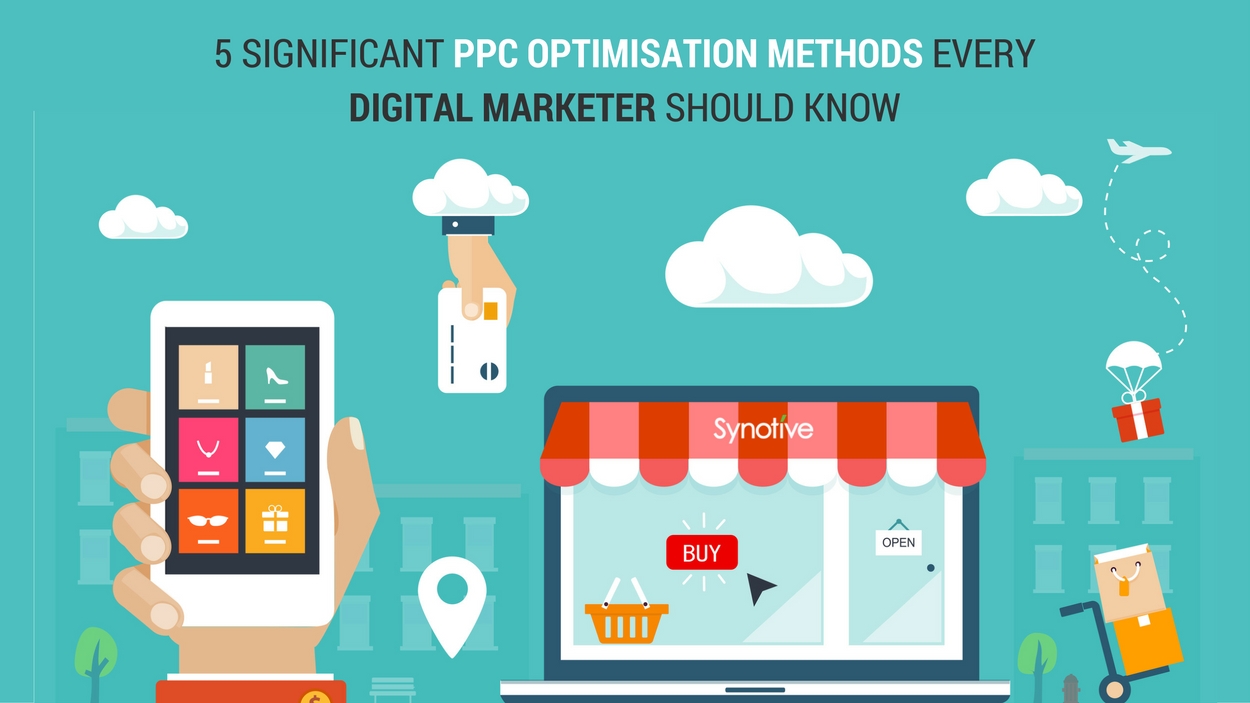
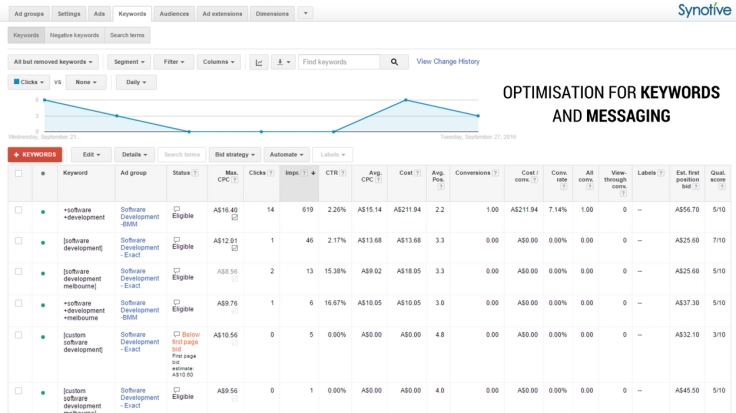
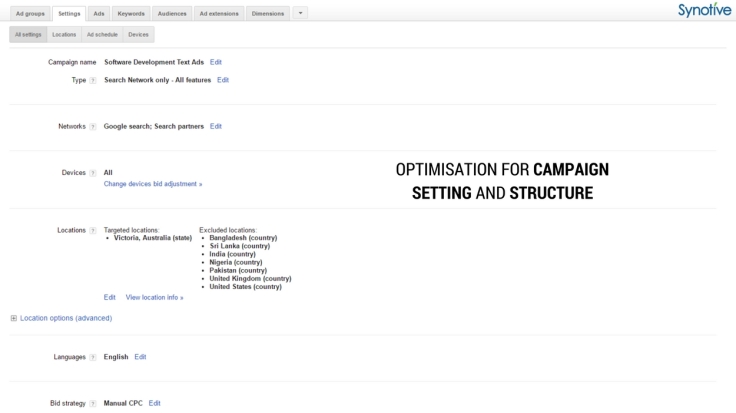
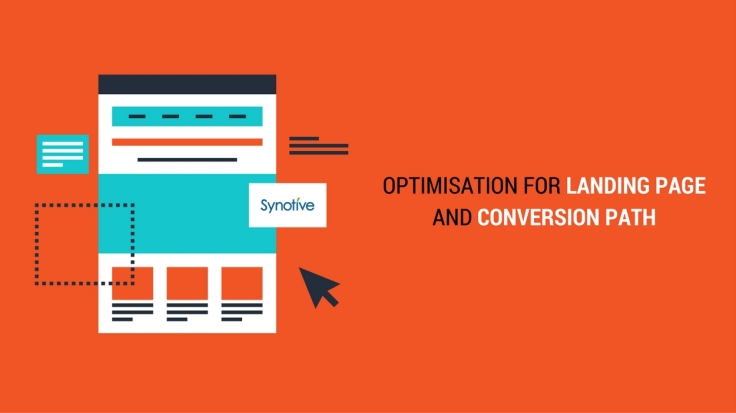
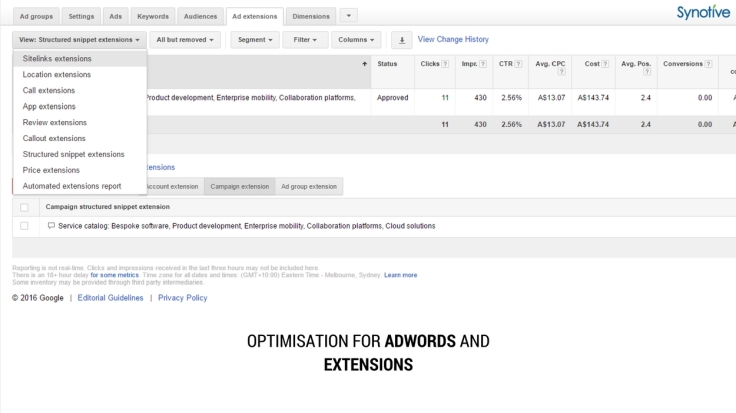

December 27, 2016 at 6:47 am
Amazing content! The PPC optimization method.
Thank you for sharing!
LikeLike